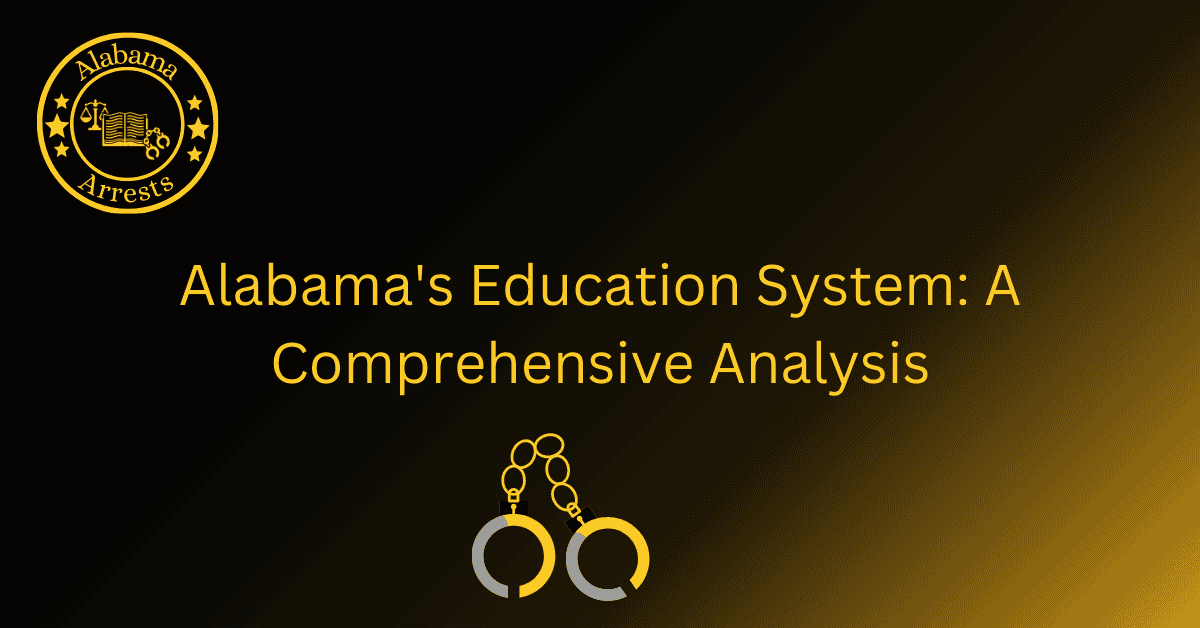Alabama’s Education System: A Comprehensive Analysis
A Comprehensive Analysis explores the strengths and challenges of one of America’s most vital educational landscapes. From the bustling urban centers to the serene rural communities, Alabama’s commitment to providing a quality education for all students is at the forefront of this analysis.
With a rich history and a deep-rooted dedication to academic excellence, Alabama’s educators, administrators, and policymakers have worked tirelessly to shape a system that prepares students for success in an ever-evolving world. This analysis delves into the state’s innovative programs, rigorous curriculum standards, and the tireless efforts of educators to ensure that every student has the opportunity to reach their full potential.
Alabama’s Innovative Programs
Alabama’s education system has been at the forefront of innovation, constantly striving to provide students with unique learning experiences. From STEM programs that encourage critical thinking and problem-solving skills to arts programs that promote creativity and self-expression, Alabama offers a wide range of innovative initiatives. These programs not only engage students but also prepare them for the challenges of the modern world.
Rigorous Curriculum Standards
Alabama’s commitment to academic excellence is evident in its rigorous curriculum standards. The state has set high expectations for students, ensuring that they are well-prepared for college and career success. By emphasizing core subjects such as mathematics, science, and English, Alabama aims to equip students with the knowledge and skills necessary to thrive in today’s competitive global economy.
The Dedication of Educators
Alabama’s educators play a pivotal role in shaping the state’s education system. Their dedication to their students is unwavering, and they go above and beyond to ensure that every child receives a quality education. From planning engaging lessons to providing individualized support, Alabama’s educators are committed to helping each student reach their full potential.
Partnerships with the Community
Alabama’s education system recognizes the importance of community partnerships in fostering student success. By collaborating with local businesses, organizations, and parents, Alabama ensures that students have access to resources and opportunities beyond the classroom. These partnerships provide students with real-world experiences and help them develop the skills they need to thrive in their future careers.
Addressing Challenges
While Alabama’s education system has made significant strides, it also faces its fair share of challenges. From funding disparities to inequitable access to resources, there are areas that require attention and improvement. However, Alabama’s policymakers are committed to addressing these challenges head-on and creating a more equitable and inclusive education system for all students.
Investing in Professional Development
Alabama recognizes the importance of continuous learning for educators. The state invests in professional development opportunities to ensure that teachers have access to the latest research, strategies, and best practices. By equipping educators with the tools they need to excel in their profession, Alabama is building a strong foundation for student success.
Supporting Student Well-being
Alabama understands that student well-being is crucial to their academic success. The state prioritizes mental health services, counseling, and support systems to ensure that students have the resources they need to thrive. By addressing the social and emotional needs of students, Alabama is creating a safe and nurturing learning environment.
FAQs
What is the current state of Alabama’s education system?
Alabama’s education system has seen significant improvements in recent years. The state has implemented various initiatives to address academic achievement gaps and improve graduation rates.
What are the key challenges faced by Alabama’s education system?
Some of the key challenges faced by Alabama’s education system include inadequate funding, a shortage of qualified teachers, and the need to close the achievement gap among disadvantaged students.
What steps has the state taken to improve Alabama’s education system?
The state has implemented several measures to improve Alabama’s education system, such as increasing funding for schools, implementing rigorous academic standards, and providing professional development opportunities for teachers.
What are the key initiatives aimed at improving education outcomes in Alabama?
Alabama has launched various initiatives to improve education outcomes, including the Alabama College and Career Ready Standards, the Alabama Reading Initiative, and the Alabama Math, Science, and Technology Initiative.
How does Alabama’s education system compare to other states?
While Alabama’s education system has made progress, it still lags behind many other states in terms of academic achievement and graduation rates. Efforts are being made to bridge this gap and improve outcomes.
What is the role of parents and communities in improving Alabama’s education system?
Parents and communities play a crucial role in improving Alabama’s education system. Their involvement and support are essential in creating a positive learning environment, fostering student success, and advocating for necessary changes and reforms.







